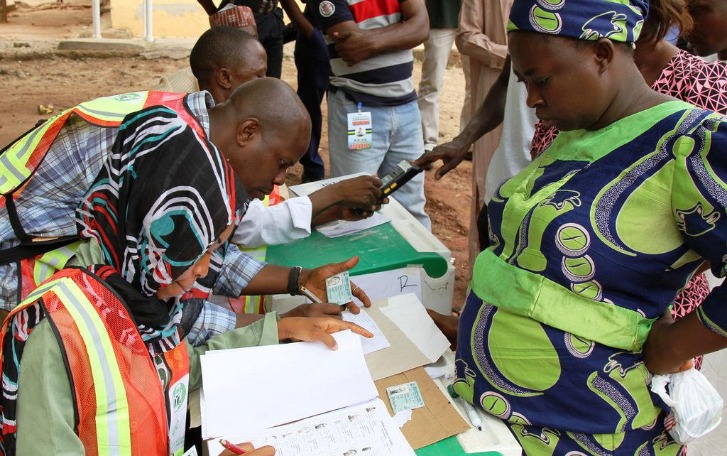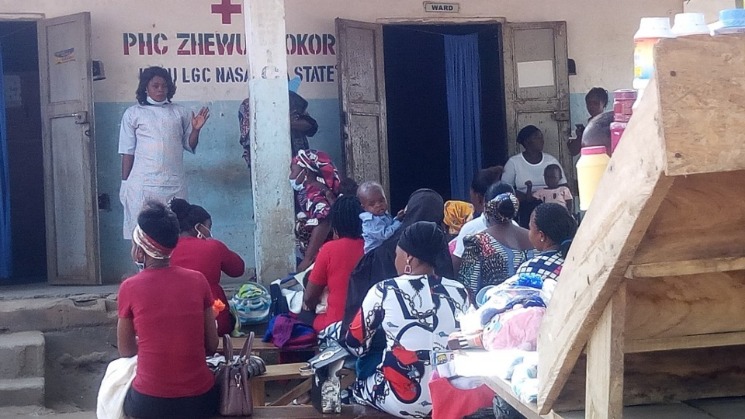Political Developments in Nigeria
Recent political developments in Nigeria have garnered significant attention both within the country and internationally. As the most populous nation in Africa, Nigeria’s political landscape is continuously evolving, reflecting the shifts in leadership, policy reforms, and societal demands. Understanding these developments is crucial for grasping the country’s current trajectory and future prospects.
Latest Presidential Elections and Outcomes
Recent political developments in Nigeria have been marked by significant changes following the latest presidential elections. The elections, held amidst widespread anticipation and voter turnout, saw a closely contested race among several major parties.
The outcome of the presidential election resulted in the victory of Bola Tinubu, representing the All Progressives Congress (APC). His election has generated mixed reactions across the nation, reflecting Nigeria’s diverse political landscape. The opposition parties, particularly the Peoples Democratic Party (PDP), contested the results, citing concerns over electoral transparency and fairness.
The new administration faces numerous challenges, including economic reforms, security concerns, and national unity. The international community has closely monitored the electoral process, emphasizing the importance of democratic stability in Nigeria’s ongoing political development.
Overall, the latest presidential elections have signaled a crucial juncture in Nigeria’s political history, shaping the country’s future trajectory and governance approach moving forward.
Government Initiatives and Policy Reforms
Recent political developments in Nigeria have been marked by significant government initiatives and policy reforms aimed at strengthening democracy and addressing pressing national issues. The Nigerian government has been actively engaged in implementing reforms to improve governance, transparency, and accountability across various sectors.
One of the notable initiatives includes efforts to combat corruption through the strengthening of anti-corruption agencies and the enactment of stricter legislation. The government has also prioritized economic reforms, focusing on diversifying the economy beyond oil dependency, encouraging investment, and fostering small and medium enterprises.
In the area of security, Nigeria has undertaken policies aimed at improving national security infrastructure, boosting military capabilities, and promoting peace initiatives in conflict-prone regions. Education and healthcare reforms have also been at the forefront, with increased budget allocations and policy measures designed to improve service delivery and access.
Additionally, recent political developments have seen greater emphasis on electoral reforms to ensure free, fair, and transparent elections. The government continues to engage with stakeholders to promote democratic principles and uphold the rule of law, setting a trajectory for Nigeria’s development and stability in the current political landscape.
Election Security and Voter Turnout
Recent political developments in Nigeria have been marked by a surge in electoral activities, amidst concerns over election security and voter turnout. The country continues to navigate complex political landscapes, with key stakeholders focusing on ensuring free and fair elections while addressing security challenges that threaten the integrity of the democratic process.
- The government has intensified efforts to secure electoral materials and polling stations to prevent violence and electoral manipulation.
- Innovative measures such as biometric voter registration and electronic transmission of results have been introduced to enhance transparency.
- Voter turnout remains a critical concern, with recent elections witnessing fluctuating participation levels due to security fears and voter apathy.
- Political parties are actively campaigning to mobilize supporters, especially in regions affected by insurgency and unrest.
- International observers are closely monitoring the electoral process, advocating for reforms to strengthen democratic institutions in Nigeria.
Economic Updates and Challenges
The Nigerian economy is currently navigating a complex landscape of updates and challenges that impact both the government and its citizens. Recent developments highlight shifts in key sectors such as oil, agriculture, and technology, while ongoing issues like inflation, unemployment, and foreign exchange fluctuations continue to pose significant obstacles. Understanding these economic trends is crucial for assessing Nigeria’s path toward stability and growth in the near future.
Inflation Rates and Price Stability
Nigeria’s economy is currently navigating a complex landscape of updates and challenges, with inflation rates remaining a primary concern for policymakers and citizens alike. Recent data indicates that inflation has persisted at elevated levels, driven by factors such as high food prices, exchange rate fluctuations, and rising fuel costs. These conditions threaten price stability, impacting the purchasing power of average Nigerians and potentially hindering economic growth. The government and the Central Bank are actively implementing measures to curb inflation, including tightening monetary policy and seeking ways to stabilize the local currency. Achieving and maintaining price stability is crucial for fostering a conducive environment for investment, improving living standards, and ensuring sustainable economic development amidst Nigeria’s ongoing financial challenges.
Foreign Investment and Economic Growth
Nigeria is experiencing a dynamic economic landscape marked by both significant opportunities and notable challenges. Despite efforts to diversify its economy, reliance on oil exports continues to pose risks amid fluctuating global oil prices. Inflation and currency volatility have also impacted economic stability, complicating government efforts to foster growth.
Foreign investment remains a crucial component for Nigeria’s economic development, with sectors such as technology, agriculture, and infrastructure attracting attention from international investors. However, issues related to security, regulatory uncertainties, and infrastructure deficits often hinder the full potential of foreign capital inflows.
In terms of economic growth, Nigeria has shown resilience, partly driven by increased domestic consumption and expanding sectors like telecommunications and services. Nonetheless, the country still faces hurdles such as unemployment, poverty, and inconsistent policy implementation, which could affect long-term sustainable growth.

Unemployment Trends and Job Creation
Recent economic updates in Nigeria indicate a gradual recovery amid ongoing challenges. The country faces inflationary pressures and fluctuating oil prices that influence overall economic stability. Unemployment remains a significant concern, particularly among youth, with rates slightly increasing due to slower private sector growth and limited job opportunities. Despite these hurdles, there have been efforts to boost job creation through government initiatives and private sector investments, aiming to diversify the economy beyond oil dependence. Overall, Nigeria’s economic landscape is navigating a complex path toward growth, requiring strategic policies to tackle unemployment and foster sustainable job creation in the coming months.
Security Situation Across Nigeria
The security situation across Nigeria remains complex and challenging, impacting the stability and daily lives of millions. Various regions face threats from insurgency, terrorism, kidnapping, and communal conflicts, which hinder economic development and social cohesion. Despite efforts by security forces, persistent violence and insecurity continue to dominate headlines and affect the nation’s progress.
Militant Activities and Clashes
The security situation across Nigeria remains volatile, marked by ongoing militant activities and frequent clashes in various regions of the country. These security challenges have significantly impacted daily life, economic activities, and the overall stability of Nigeria.
- Militant groups, particularly in the Niger Delta and northeastern regions, continue to carry out attacks on oil infrastructure, government facilities, and military installations, aiming to press demands for regional autonomy and resource control.
- Clashes between security forces and insurgents have resulted in numerous fatalities, displacement of communities, and damage to critical infrastructure, complicating efforts to restore peace and order.
- The rise of separatist movements and armed gangs has further destabilized areas that were previously recovering from conflict, causing widespread insecurity among local populations.
- Recent operations by Nigerian military and security agencies have seen some successes, but the persistence of militant activities indicates the need for comprehensive strategies to address the root causes of violence.
- International partners and organizations continue to call for increased support, intelligence sharing, and development initiatives to mitigate security threats and foster stability across Nigeria.
Counter-Terrorism Operations
The security situation across Nigeria remains complex and challenging, with various regions experiencing heightened tensions due to insurgency, banditry, and other criminal activities. Counter-terrorism operations continue to be a primary focus for Nigerian security forces, aiming to weaken the influence of groups such as Boko Haram and ISIS-West Africa. Despite significant efforts, these groups persist in launching attacks, especially in the northeastern states, causing loss of lives and displacement of communities. The Nigerian government collaborates with international partners to enhance intelligence gathering, military capacity, and community engagement to combat terrorism effectively. Ongoing operations involve airstrikes, patrols, and strategic raids targeting insurgent hideouts, but the security landscape remains volatile, requiring sustained vigilance and adaptive strategies.
Regional Security Alliances and Efforts
The security situation across Nigeria remains complex and challenging, characterized by ongoing conflicts with insurgent groups, communal clashes, and criminal activities. Regions such as the Northeast continue to grapple with the Boko Haram insurgency, which has resulted in loss of lives and displacement of communities. In the Northwest and Northcentral, banditry, kidnapping, and cattle rustling have escalated, posing significant threats to stability and economic development. Urban areas like Lagos and Abuja face issues related to terrorism, cybercrime, and organized crime, further complicating the security landscape.
To address these issues, Nigeria has engaged in regional security alliances and collaborative efforts with neighboring countries. The Multinational Joint Task Force, comprising Nigeria, Niger, Chad, Cameroon, and Benin, aims to combat Boko Haram and other terrorist threats in the Lake Chad Basin. Additionally, the Economic Community of West African States (ECOWAS) has initiated initiatives to promote peace, stability, and security cooperation among West African nations. Nigeria has also partnered with international organizations such as the African Union and INTERPOL to enhance intelligence sharing, training, and security capacity building. Despite these efforts, sustained commitment and comprehensive strategies are essential to restore lasting peace and stability across Nigeria’s diverse regions.
Social Issues and Community Movements
Social issues and community movements play a vital role in shaping Nigeria’s society, addressing challenges such as inequality, human rights, and development. In recent times, Nigerians have increasingly come together to advocate for change, promote social justice, and foster community resilience. These movements highlight the collective effort of individuals and organizations striving to improve living conditions and create a more equitable society across the country.
Public Health and COVID-19 Response
Recent developments in Nigeria highlight the pressing social issues and the evolution of community movements aimed at addressing local challenges. Citizens are increasingly mobilizing to advocate for better living conditions, education, and social justice. The COVID-19 pandemic has further underscored the importance of robust public health strategies, prompting the government and communities to enhance healthcare infrastructure and vaccination efforts. Efforts to curb misinformation and promote health awareness have become central to Nigeria’s pandemic response. These initiatives reflect a collective effort to build resilience and ensure social cohesion amidst ongoing health and societal challenges.
Education Sector Developments
Recent developments in Nigeria highlight significant social issues and active community movements striving for positive change. Across the country, grassroots organizations are fighting for justice, equality, and improved living conditions, reflecting a growing awareness and unity among citizens. These movements address critical challenges such as youth unemployment, gender equality, and corruption, aiming to create a more inclusive society.
In the education sector, Nigeria has seen notable advancements despite ongoing challenges. Efforts are being made to improve access to quality education, especially in rural areas, through government initiatives and private sector partnerships. Recent policies focus on curriculum reform, teacher training, and infrastructure development, encouraging higher enrollment rates and better learning outcomes. These developments are essential for empowering the youth and fostering sustainable national growth.
Human Rights and Civil Society Actions
Recent developments in Nigeria highlight the ongoing struggle for social justice and community activism. Various grassroots movements are increasingly advocating for improved human rights, addressing issues such as police brutality, corruption, and equitable access to resources. Civil society organizations play a vital role in raising awareness, mobilizing citizens, and holding authorities accountable. These actions reflect a growing awareness among Nigerians of their rights and the importance of collective efforts to foster positive change. Despite challenges, such as government resistance and social unrest, community movements continue to shape the national discourse around justice, equality, and democratic governance.
Environmental and Natural Resources News
Recent developments in Nigeria highlight the nation’s ongoing efforts to address environmental challenges and preserve its natural resources. From initiatives aimed at combating desertification to initiatives promoting renewable energy, Nigeria’s environmental news reflects both opportunities and obstacles in balancing economic growth with ecological sustainability. These stories underscore the importance of sustainable practices and government actions in protecting Nigeria’s rich natural heritage for future generations.
Oil Spill Incidents and Environmental Damage
Recent environmental news in Nigeria highlights ongoing concerns related to oil spill incidents and their significant impact on local ecosystems and communities. These spills often originate from aging infrastructure, illegal crude oil refining, or sabotage, leading to widespread environmental degradation.
- In the Niger Delta region, several recent oil spills have contaminated waterways, affecting fish populations and the livelihoods of local fishermen.
- Communities have reported increased health problems and loss of access to clean water sources due to persistent pollution from oil leaks.
- Efforts by government agencies and oil companies to clean up spill sites have faced criticism for slow response times and inadequate remediation measures.
- The government has introduced new regulations aimed at stricter monitoring of oil drilling activities to prevent future spills.
- Environmental groups continue to advocate for corporate accountability and community-based solutions to mitigate ecological damage.
- Despite these initiatives, the frequency and severity of oil spills in Nigeria remain a major environmental challenge that needs sustained attention and action.
Climate Change Impact and Adaptation Strategies
Recent developments in Nigeria highlight the urgent need to address environmental and natural resources challenges exacerbated by climate change. The nation faces increasing threats from desertification, deforestation, and flooding, which threaten agriculture, biodiversity, and local communities. Efforts are underway to implement sustainable practices and conservation initiatives to protect vital ecosystems and natural resources. In response to these climate impacts, Nigeria is adopting adaptation strategies such as advancing renewable energy projects, enhancing disaster response systems, and promoting afforestation. These measures aim to build resilience among vulnerable populations and ensure a sustainable future amid the escalating impacts of climate change.
Conservation Efforts and Sustainability Programs
Recent developments in Nigeria highlight significant progress in environmental conservation and natural resource management. Various government initiatives and non-profit organizations are working tirelessly to combat deforestation, promote sustainable agriculture, and protect biodiversity across the country. The Nigerian government has launched several programs aimed at reforestation and afforestation, aiming to restore degraded lands and combat desertification in the northern regions.
Furthermore, Nigeria is increasingly adopting renewable energy sources such as solar and wind power to reduce dependence on fossil fuels and lower greenhouse gas emissions. Community-led conservation efforts are also gaining momentum, with local communities actively participating in protecting natural habitats and wildlife, including the critically endangered Nigerian-Cameroon chimpanzee and West African elephants.
Several sustainability programs are underway, focusing on promoting eco-friendly farming practices, waste management, and water conservation. These initiatives not only aim to preserve Nigeria’s rich natural resources but also to ensure sustainable economic development and improve the livelihoods of local populations. Strengthening policy frameworks and increasing awareness about environmental issues remain key priorities for Nigeria’s path toward a greener future.





0 Comments